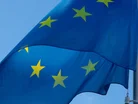What do Leading Companies Think of the EU Green Deal?

The European Commission faces mounting calls to stay committed to its Green New Deal, as more than 60 companies and 180 non-governmental organisations (NGOs) across Europe have made a united appeal.
These leading companies, including IKEA, Patagonia and Nestlé, along with groups like WWF, have signed a joint statement calling for the EU to maintain its environmental goals without sacrificing regulatory standards.
Despite representing just 6% of global emissions, the EU’s environmental regulations influence a wide range of companies aiming to operate in the region.
For these businesses, which are dependent on a stable regulatory framework, the EU’s commitment to climate goals is not only an ethical concern but also a financial one.
The statement from the companies and NGOs, 'A Business Perspective: Strong Environmental Standards Foster Long-Term Competitiveness,' highlights the risk of lowering environmental standards.
They argue that deregulation undermines both climate objectives and business stability. "The current climate, nature and pollution crises are taking a serious financial toll on businesses," the statement says, continuing, “Deregulation, whether through lowering environmental or social standards, reneging on international commitments, or reducing the EU’s climate ambition, threatens the stable and predictable legal framework that we depend on.”
For Ester Asin, Director of WWF’s European Policy Office, the Commission’s approach to climate action remains critical: "The European Commission has a crucial choice ahead of itself: we must implement smarter, not less."
She adds the EU must "make sure existing laws are implemented efficiently and effectively."
These companies and NGOs argue that strong environmental policies and clear regulations promote a competitive advantage, enabling businesses to plan for a sustainable future.
Understanding the European Green Deal
The European Green Deal, introduced by the European Commission, aims to make Europe the world’s first climate-neutral continent by 2050. To achieve this, the EU has rolled out more than 150 directives and regulations covering sectors from energy to agriculture.
In 2021, the EU codified its ambition in the EU Climate Law, which commits to cutting greenhouse gas emissions by 55% by 2030. The initiative also includes the Just Transition Mechanism, a strategy to ease the social impact of these changes on industries and communities, particularly in sectors like oil and gas.
"We need a level playing field when it comes to corporate sustainability," comments Andreas Rasche, Professor and Associate Dean at Copenhagen Business School.
While voluntary standards have supported sustainability efforts, Andreas argues they do not reach the scale required. He points out that many Green Deal regulations are designed to increase transparency, helping investors to shift capital toward cleaner industries and companies.
Among the initiatives adopted for the EU’s 2030 emissions reduction goals are the Emissions Trading System (ETS) reform, the Carbon Border Adjustment Mechanism (CBAM) and the Social Climate Fund.
These regulations aim to curb carbon emissions across various sectors while setting new efficiency standards for industries and infrastructure. A recent report, 'The State of the Energy Union 2024', indicates that the EU is progressing on its climate neutrality path, with renewable sources generating half of the bloc’s electricity in early 2024.
Concerns over potential rollbacks in Green Deal policies
Some signs of potential rollbacks in EU climate policies are beginning to emerge.
WWF has highlighted decisions such as an emergency reform of the EU’s agricultural policy in response to farmer protests, which has led to a reduction in environmental standards in this sector.
In October 2024, the European Commission proposed delaying the application of the EU’s deforestation-free products regulation by a year. Additionally, incoming Agriculture Commissioner Christophe Hansen announced that the Commission would be dropping a proposal for a sustainable food systems law. There are also increasing calls to delay the EU’s zero-emissions target for cars and vans to 2035, which would prohibit the sale of new fossil-fuel vehicles.
Tycho Vandermaesen, Policy & Strategy Director at WWF, sees these delays as concerning signs of shifting priorities: "The Commission's recent proposal to delay the application of the EU Deforestation Regulation is a clear sign of this new narrative taking hold in European politics," he states.
"But it’s a mirage: we can’t have a strong economy without a strong Green Deal."
For businesses like Decathlon, which has invested in sustainable practices, regulatory certainty is crucial.
The flagship Green Deal is Europe’s greatest competitive advantage – benefiting business, nature and society and powering our economic future. And we, companies, need certainty.
A clear, predictable legal framework will allow continued investment in sustainable practices that future-proof jobs, prosperity and nature.
As the European Commission navigates these calls for action, stakeholders from both the corporate world and civil society are clear that the European Green Deal offers more than just environmental benefits – it is also a foundation for stable, long-term economic growth.
Receive the next edition of Scope 3 Magazine by signing up for its newsletter.
As part of this portfolio, make sure you check out Procurement Magazine and also sign up to our global conference series - Procurement & Supply Chain LIVE.
Scope 3 Magazine is a BizClik brand.
- Scope 3: Baltic States end Russian Energy DependenceSustainable Procurement
- TÜV SÜD: Scope 3 Compliance Challenge in Battery RegulationSupply Chain Sustainability
- Chartwells Leads on Sustainability with Scope 3 TrackingScope 1 2 and 3
- UK Revises Sustainability Reporting StandardsSustainability Reporting
Featured Articles
Estonia, Latvia and Lithuania join the European grid, cutting ties with Russian energy, a move that boosts regional security and sustainability
TÜV SÜD: New battery regulations bring Scope 3 hurdles, requiring sustainable sourcing, digital traceability and design changes increasing compliance
Nissan is scaling up its use of green steel, reducing CO2 emissions in its supply chain as part of its goal to achieve carbon neutrality by 2050

